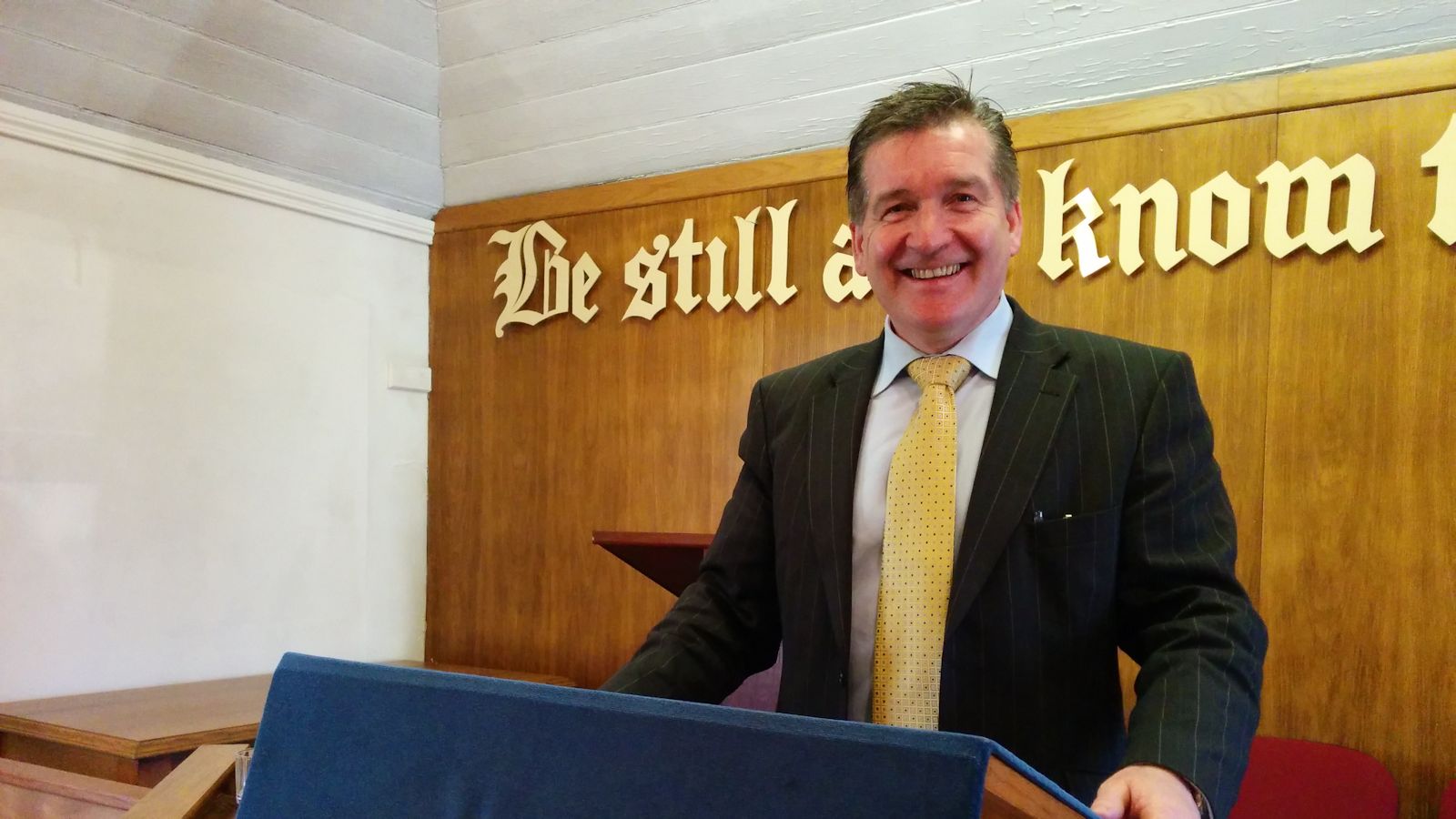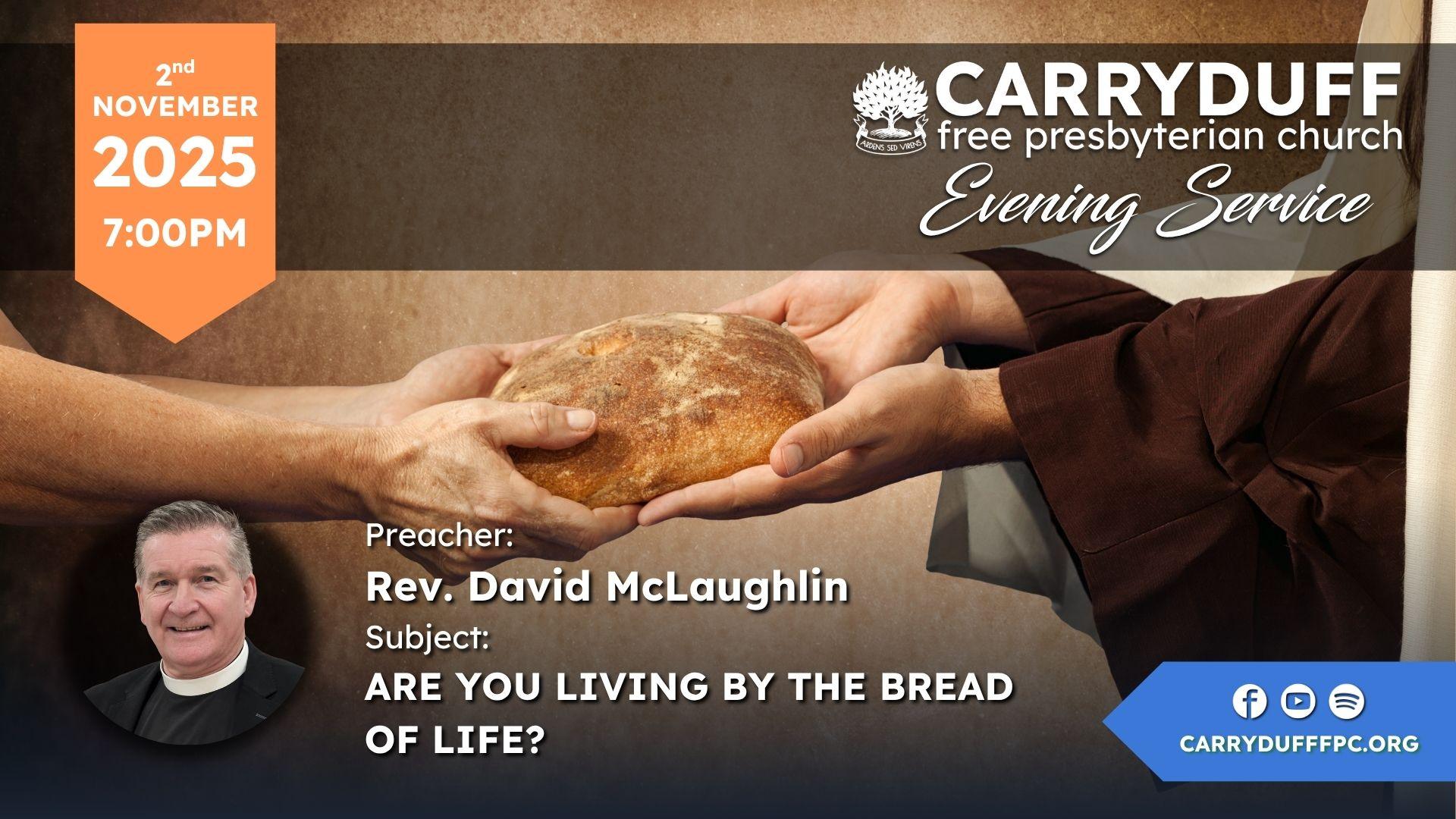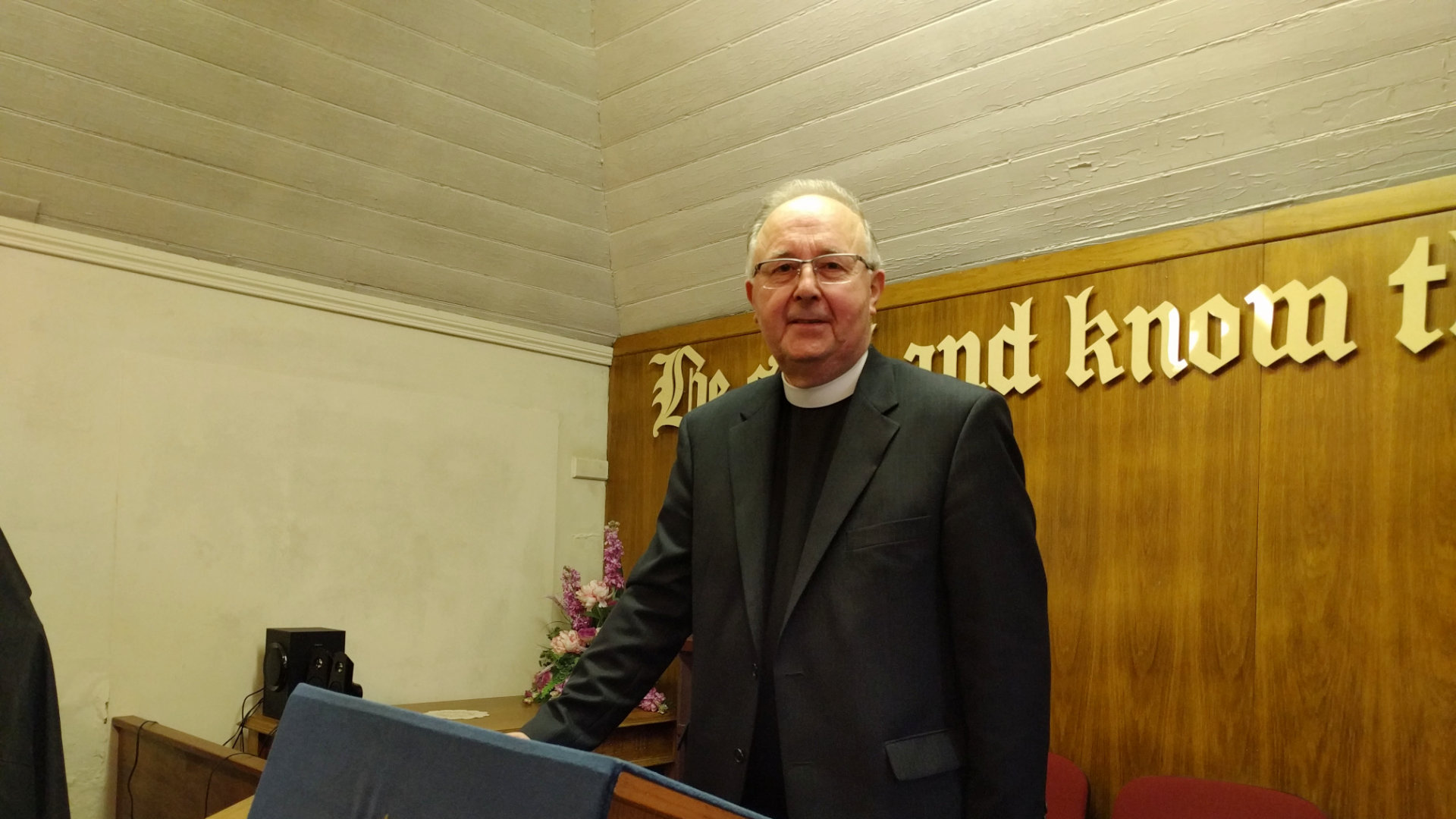Date: FRI 8:00 PM 13th June 2025
Singer: Elizabeth Steele
Preacher: Mr. Noel Shields
Bible Reference: John 6:37
All that the Father giveth me shall come to me; and him that cometh to me I will in no wise cast out.
Detailed Summary of the Sermon on John 6:37
The sermon, delivered from John’s Gospel, Chapter 6, verse 37, centers on the assurance of God’s unfailing welcome through Jesus Christ’s words: “All that the Father giveth me shall come to me; and him that cometh to me I will in no wise cast out.” The preacher emphasizes the invitation to salvation, the simplicity and necessity of coming to Christ, and the security of God’s promise. Drawing heavily on the life of John Bunyan, the sermon illustrates the transformative power of this verse for sinners seeking redemption. Below is a detailed summary organized by the sermon’s key themes and points.
1. Introduction and Context
- Scriptural Foundation: The sermon is based on John 6:37, a well-known verse from the Gospel of John, which the preacher describes as containing the “wonderful words of the Lord Jesus Christ.”
- Theme of Assurance: The verse offers the promise of God’s unfailing welcome to those who come to Christ, assuring that no one who seeks Him will be rejected.
- Prayer for Guidance: The preacher opens with a prayer, thanking God for the opportunity to gather, for the music ministry, and for the focus on the cross. He prays for those far from Christ to come to faith and for God’s blessing on the preaching of His Word.
- Personal Connection: The preacher acknowledges that many in the congregation likely have favorite Bible verses, introducing John 6:37 as a favorite of John Bunyan, setting the stage for a historical illustration.
2. The Story of John Bunyan
- Background: John Bunyan, born in 1628 in Bedford, England, grew up in poverty. Despite his circumstances, his parents ensured he learned to read and write, which later influenced his writing of The Pilgrim’s Progress.
- Sinful Youth: Bunyan described himself as a young man unmatched in cursing, swearing, lying, and blaspheming, highlighting that sin is not confined to age.
- Conviction of Sin: As he grew older, Bunyan became deeply troubled by his sins, fearing hell and eternal punishment. He envied animals for their lack of spiritual burdens.
- Turning Point: While playing a game called “cat,” Bunyan heard a voice from heaven asking whether he would leave his sins for heaven or keep them and go to hell. This intensified his spiritual distress.
- Discovery of John 6:37: Bunyan found comfort in John 6:37, realizing that he only needed to come to Jesus as he was—sinful and guilty—to be accepted. This verse became a cornerstone of his conversion, leading him to faith in Christ.
3. The Step Needed for Salvation
The preacher outlines the necessity, simplicity, and nature of the step required for salvation: coming to Jesus Christ.
- Necessity of Coming to Christ:
- The phrase “him that cometh unto me” underscores that salvation requires a personal response to Christ’s invitation.
- Jesus emphasizes “me,” indicating that He alone is the Savior, not churches, religious figures (e.g., Mary, Muhammad, Buddha), or rituals.
- Supporting scriptures include 1 John 4:14 (Jesus as the Savior of the world) and Acts 4:12 (no other name for salvation).
- The preacher cites Robert Brown: “God never saves a spectator,” stressing that passive listening to the gospel is insufficient; one must actively come to Christ.
- Simplicity of the Step:
- Salvation is free, requiring no money, works, or deeds (Isaiah 55:1). The preacher contrasts this with human attempts to earn salvation through effort.
- The gospel’s simplicity is illustrated by advising Roman Catholics to “cut out the middlemen” and go directly to Christ.
- The hymn lyric “nothing in my hands I bring, simply to thy cross I cling” reinforces that salvation is a gift of grace.
- Coming by Faith:
- Since Jesus is in heaven, coming to Him is an act of faith, not a physical journey. The preacher encourages turning to Christ in prayer, trusting in His blood, righteousness, wounds, life, and death for salvation.
- C.H. Spurgeon is quoted to describe coming to Christ’s blood for cleansing, His righteousness for justification, His wounds for healing, His life for eternity, and His death for the forgiveness of sins.
- Coming with Repentance:
- Coming to Christ involves forsaking sin, as Jesus taught in Luke 13:5: “Except ye repent, ye shall all likewise perish.”
- Repentance is defined as turning away from sin and toward Christ, abandoning worldly pleasures, immoral behaviors, and sinful company (Isaiah 55:7).
- Martin Lloyd-Jones is cited: “Christianity starts with repentance,” emphasizing that salvation requires a change of heart and life.
- The preacher challenges listeners to let go of false hopes, such as good works or church affiliation, which cannot save (Galatians 2:16).
4. The Scope of Salvation
The sermon highlights the universal invitation of John 6:37, encapsulated in the word “him”—anyone who comes to Christ, regardless of background or sin.
- Universal Invitation:
- When asked who “him” refers to, John Bunyan answered, “It’s him that cometh,” emphasizing that the invitation is for anyone willing to respond.
- The preacher notes that “him” includes women, addressing potential misinterpretations of the text’s language.
- No Barriers of Race or Culture:
- Salvation is open to all, regardless of race or nationality (e.g., African, Indian, Chinese, white, black). The preacher shares experiences preaching in diverse countries like the Philippines, Kenya, Uganda, and Australia.
- Revelation 7:9 is cited, describing a multitude from all nations, kindreds, peoples, and tongues in heaven, proving the gospel’s global reach.
- No Barriers of Sin:
- The vilest sinners can come to Christ, including murderers, thieves, and the demon-possessed. Examples include:
- Manasseh (2 Kings 21:16; 2 Chronicles 33), who filled Jerusalem with blood but found mercy after repenting in prison.
- The Thief on the Cross (Luke 23:42-43), who lived a sinful life but was saved in his final moments by calling on Jesus.
- Legion (Mark 5), a demon-possessed man delivered by Christ.
- Corinthians Sinners (1 Corinthians 6:11), including homosexuals and others, who were washed and justified through Christ.
- The preacher asserts that the blood of Jesus cleanses from all sin (1 John 1:7), leaving no sin too great for forgiveness.
- The vilest sinners can come to Christ, including murderers, thieves, and the demon-possessed. Examples include:
- No Barriers of Religion or Idolatry:
- Idol-worshippers can turn from their idols to serve the living God (1 Thessalonians 1:9), receiving Christ’s mercy.
- No Barriers of Age, Status, or Excuses:
- Excuses like being too old, too young, too poor, too bad, or never having attended church are invalid. The invitation is simply “him that cometh.”
5. The Security of Salvation
The sermon concludes with the assurance that those who come to Christ will never be rejected, based on the phrase “I will in no wise cast out.”
- Certainty of Acceptance:
- The Greek text uses a double negative, translated as “never, never cast out,” emphasizing the absolute certainty of Christ’s promise.
- This security applies regardless of future failures, weaknesses, or fears of judgment. God’s promise is unchangeable (Titus 1:2), as He cannot lie.
- John Bunyan’s Testimony:
- Bunyan struggled with doubts but found peace in John 6:37, declaring to his wife, “Now I know, I know,” because he had come to Christ and been saved.
- On his deathbed, Bunyan’s last words were, “Take me, for I come to thee,” confident in Christ’s promise.
- Christ’s Work Guarantees Salvation:
- Jesus’ mission is to save sinners (Luke 19:10). His nail-pierced hands, shed blood, and death on the cross ensure that no repentant soul will be turned away.
- The preacher rhetorically asks how Christ could reject a trembling, repentant sinner, asserting that heaven would mourn and hell would rejoice if He did, which is impossible.
6. Final Appeal
- Urgency to Respond:
- The preacher passionately urges the congregation to come to Christ immediately, emphasizing that salvation is free and available now (2 Corinthians 6:2: “Behold, now is the accepted time; behold, now is the day of salvation”).
- Listeners are encouraged to settle the matter of their soul’s salvation, not delaying until another time or mission.
- Personal Testimony:
- The preacher shares his own conversion story, admitting he came to Christ in his fifties, still reeking of alcohol from the previous night. Like Bunyan, he was accepted just as he was, describing it as the happiest day of his life.
- Practical Steps:
- While not requiring physical actions like walking to the front of the church, the preacher invites those convicted to speak with him or others after the service to settle their faith.
- The hymn “I Heard the Voice of Jesus Say” is referenced, reinforcing the rest and joy found in coming to Christ.
- Closing Challenge:
- The sermon ends with a direct question: “Why would you not come?” The preacher removes all excuses, fears, and doubts, presenting Christ’s unfailing welcome as the ultimate reason to trust Him for salvation.
Key Takeaways
- Central Message: John 6:37 assures that anyone who comes to Jesus Christ in faith and repentance will be accepted, regardless of their past or present condition.
- John Bunyan’s Example: His journey from a sinful, troubled youth to a saved believer illustrates the power of coming to Christ as one is.
- Three Main Points:
- Step Needed: Salvation requires coming to Christ by faith, with repentance and without reliance on works or other mediators.
- Scope of Salvation: The invitation is universal, open to all races, sinners, and those bound by false religions or excuses.
- Security of Salvation: Christ’s promise and work guarantee that no one who comes to Him will ever be cast out.
- Call to Action: The sermon is a fervent evangelistic appeal, urging immediate response to Christ’s invitation to ensure eternal life.
This sermon combines biblical exposition, historical illustration, personal testimony, and practical application to convey the urgency and simplicity of the gospel message.
Subscribe to the podcast here:
Spotify Podcasts | Apple Podcasts | Pocket Casts
Email | RSS | more information here








